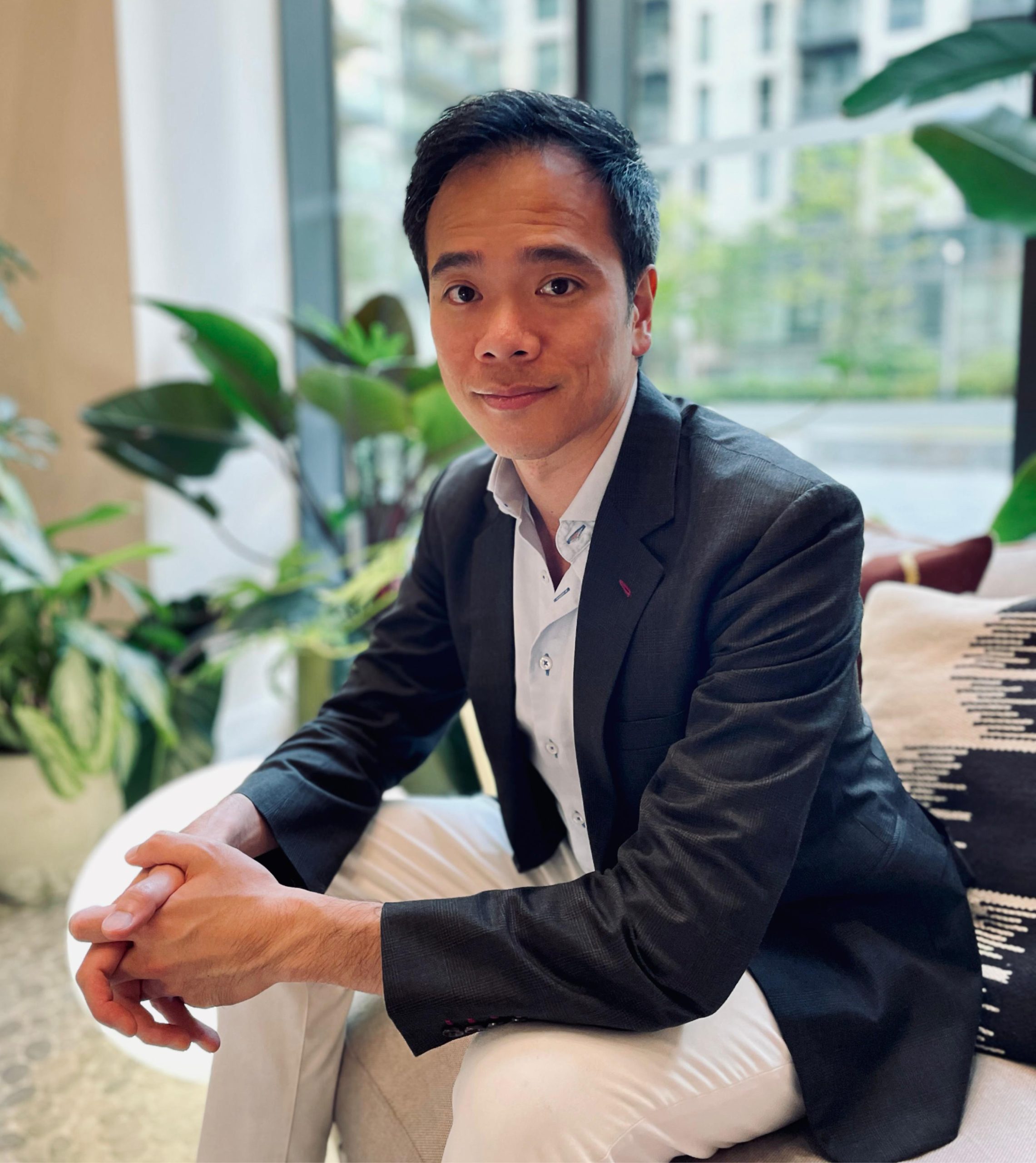


While blockchain is most famous for being associated with cryptocurrency Bitcoin, it has the potential for extensive use in other industries – including hospitality. We spoke to two Glion alumni who are working with the technology to find out more…
A hospitality education can open up a whole world of opportunities and not just for traditional roles in hotels, restaurants and events companies. That said, it is still quite unusual that our graduates end up operating at the cutting edge of technology.
However, that’s exactly where Camilla Parisotto and Ronald Loh are currently working, with both having embarked on a career path that involves one of the most misunderstood technologies – blockchain.
The first commercial blockchain was launched in 2009 to support the cryptocurrency Bitcoin. Since then, this distributed ledger technology has been applied to many other essential functions, including supply chain management, healthcare and identity verification, among other things. So while it remains closely associated with cryptocurrencies, the wider use of blockchain is expected to expand as the technology develops.
The Insider caught up with Camilla and Ronald to find out more about how they got into the blockchain space, how a hospitality education helped, and what they think the future holds for the technology.

The Insider (TI): First of all, what did you do after graduation?
Ronald Loh (RL): After graduating from Glion with a Bachelor’s degree majoring in Real Estate Finance and Revenue Management, I transitioned into the financial sector, specializing in selling structured products from banks to ultra-high net worth individuals at a financial brokerage. I later re-entered the hospitality industry, focusing on supply chain management, before moving decisively into the blockchain space.
Camilla Parisotto (CP): I worked at Bloomberg for four years after Glion. I remember the year I joined, they had introduced cryptocurrencies on the terminal, so I could see it had potential despite being in a part of the industry that was still resistant to it. Following that, I worked for an AI fit-tech startup called Xtravision [now NoraHealth] focused on wellbeing and health, which is where I first started building digital communities.
TI: What first sparked your interest in blockchain?
CP: I was still at Glion when I bought my first cryptocurrencies. What interested me was the idea of decentralization, provenance and transparency this new technology was bringing, especially to the world of finance. It was quite idealistic back then and people thought it was going to change the world. Being part of it felt like doing something revolutionary. It brought together people with a certain outlook and I think the community building element really appealed.
RL: It wasn’t really Bitcoin that brought me to this industry; rather, it was the transformative potential of blockchain technology across various sectors. Recognizing its capacity to revolutionize logistics, insurance, and supply chain management, I initially engaged with the industry through part-time roles with DeFi (Decentralized Finance) projects. This experience led me to work with different crypto exchanges and network protocols, allowing me to navigate through numerous trends and focus on identifying blockchain applications with genuine potential.

“I was still at Glion when I bought my first cryptocurrencies. What interested me was the idea of decentralization, provenance and transparency this new technology was bringing, especially to the world of finance. It was quite idealistic back then and people thought it was going to change the world.”
Camilla Parisotto
TI: What is your current role and what part does blockchain play in it?
RL: I’m Head of Wirex Private, a bespoke crypto banking service. Essentially, I bring the human element to crypto, guiding my clients through the intricacies of cryptocurrencies and making sure they have a seamless experience. At Wirex, we offer a platform that empowers individuals to use cryptocurrencies for payments across assets and services, bridging the gap between traditional banking and innovative blockchain technology. Rather than reinventing traditional financial services, we enhance them by leveraging blockchain’s capabilities.
CP: I’m the Co-Founder of Mood Labs, which is a marketing agency for Web 3 companies and products, based in Dubai. We founded it in 2022 and have been providing marketing, consultancy, go-to-market strategies and growth services for clients in that space ever since. Web 3 is a big umbrella, so clients could be a protocol that’s building infrastructure for the blockchain space or an NFT collection or a coin. It really varies. We use on-chain data for research purposes and for some campaigns.
TI: How has your Glion education helped in your chosen career path?
RL: Like hospitality, this is a service-oriented industry, so having an understanding of luxury and personalized service is highly relevant to my current work. The hands-on experience from Glion’s program provides a deep understanding of both front-end excellence and back-end operations, essential for achieving seamless service delivery. These skills are versatile and applicable across industries. And they’re valuable preparation for the real-world challenges ahead.
CP: A lot of people ask me what the link is between crypto and hospitality management because at first it can seem like those worlds are far apart. But what we learned at Glion helped me grow personally and professionally. In my world, empathy is essential and, to market a product successfully, you have to be able to understand the consumer and put yourself in their shoes. Networking is critical to my line of work, too. I found things such as the internships, the university environment and the focus on nurturing the famous ‘Glion Spirit’ were perfect for developing these soft skills I’ve needed.
TI: What kind of applications could blockchain have in hospitality?
RL: Blockchain technology holds significant promise for the hospitality industry, particularly in improving loyalty reward programs. Currently, loyalty points issued by airlines, hotels and car rental services are valuable digital assets, yet their transferability is often limited. By leveraging blockchain, these points can be made more easily transferable among partner organizations securely and transparently. This not only increases their value to customers, it also boosts operational efficiency for hospitality providers. While we are still exploring and experimenting with these possibilities, the potential for innovation in this area is really compelling.
CP: While at Glion we talked a lot about innovating. I think it has a lot of potential in the events industry and, for example, I can see things such as ticketing moving onto blockchain soon enough. We are also now able to create NFTs [non-fungible tokens] at a large scale and distribute them to people who attend events as a sort of digital souvenir. These are linked to a wallet that people create just by signing up with an email. And that gives companies access to a large consumer base they can stay in touch with, invite to further events and really reinforce that brand connection.

“Blockchain technology holds significant promise for the hospitality industry, particularly in improving loyalty reward programs. Currently, loyalty points issued by airlines, hotels and car rental services are valuable digital assets, yet their transferability is often limited. By leveraging blockchain, these points can be made more easily transferable among partner organizations securely and transparently.”
Ronald Loh
TI: How do you see things developing in future?
CP: I think we’ll soon be at a stage where digital identities are going to be as important as your real-life persona. We are living in a digital world and people will be paying more and more attention to their online selves in the same way they care about their appearance or purchase goods such as designer clothes today. Their digital image will be equally important and blockchain will play a huge role in that.
Interoperability is also moving forward and, as that progresses, more people will be able to use blockchain – largely without realizing. I think in the future we’ll have mass adoption of the technology and people will be using cryptocurrency without necessarily knowing or caring which one it is.
RL: We’re witnessing the early stages of adoption, notably with El Salvador leading by integrating Bitcoin as a medium of exchange, alongside other countries such as Australia and Argentina with similar initiatives. The trajectory suggests cryptocurrency will likely become ingrained in our daily lives, evolving towards a seamless user experience that everyone in the industry is striving towards.
While regulatory and legacy systems initially resisted blockchain technology, there is now a growing openness to explore its potential benefits. Legacy banks, for instance, have recognized the inevitability of blockchain’s impact and are actively engaging with it. This acknowledgment marks a significant shift in the industry landscape, indicating a broader acceptance for the integration of blockchain technology now and in the future.
Photo credits
Main image: matejmo/Getty
Bitcoin image: da-kuk/Getty
Explore blockchain technology and applications within the luxury industry
Sign up for ‘Blockchain in the Luxury and Hospitality Business’ – a new, 100% online course by Glion which will build your blockchain expertise across three immersive weeks (8-12 study hours per week). Next start date: 9 October 2024.
















